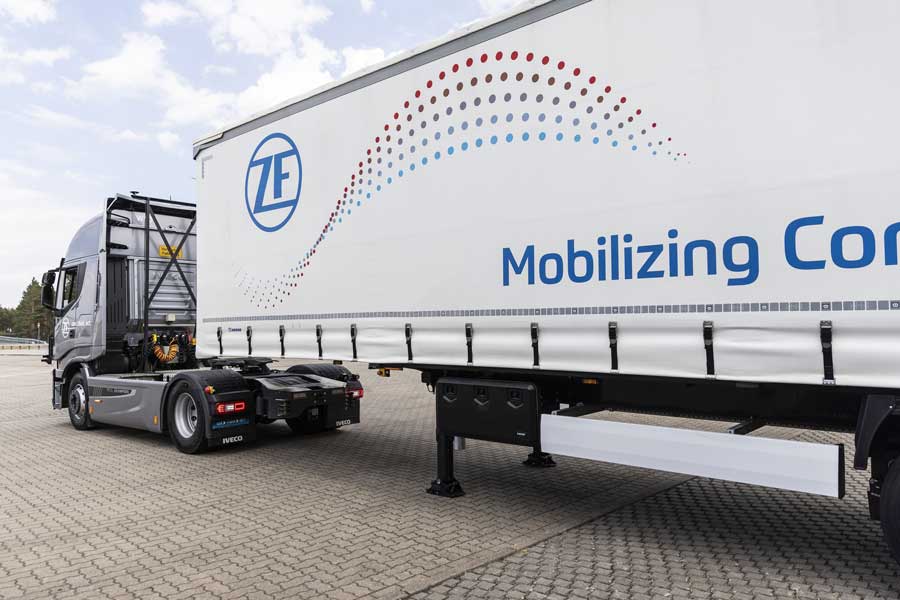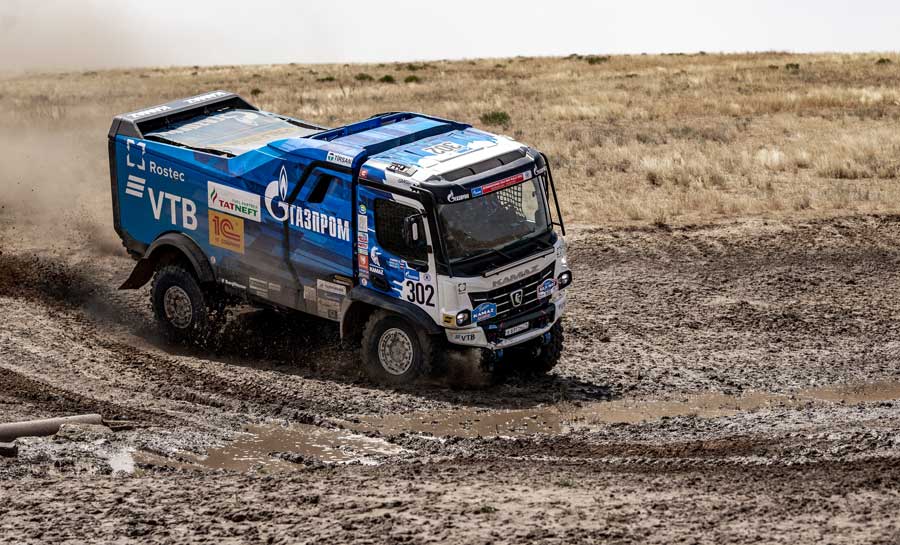Stephan Weil, Minister President of Lower Saxony, visited the Volkswagen Commercial Vehicles (VWCV) site in Hannover today to find out about the most important topics for the brand in future. His visit to the factory focused on autonomous driving, electric mobility, digitalisation, transformation and new business models. Together with further board members, Dr Thomas Sedran, Chairman of the VWCV Brand Board of Management, explained strategies, future areas of business and technical innovations.
Volkswagen Commercial Vehicles is responsible for key future issues within the Group. The plant in Hannover is being expanded to become a centre of excellence for electrically powered light commercial vehicles. The all-electric ID. BUZZ, the new version of the Volkswagen Bulli brand icon, will roll off the production line here from 2022. In addition, within the Group VWCV has started cooperating with Ford in the area of light commercial vehicles. Furthermore, group activities relating to new mobility services such as MOIA and the development of fully automatic robot taxis will be bundled in Hannover.
During his visit, the Minister President was informed about the future field of autonomous driving, based on the example of the SEDRIC (SElf DRIving Car) concept vehicle. SEDRIC is a platform for ideas relating to sustainable, safe and comfortable mobility that is always available at the touch of a button. During his tour of the plant, Weil also spoke with employees about the way jobs are changing with increasing digitalisation in the industry (transformation of personnel/production).

Weil: “Volkswagen Commercial Vehicles is on the right track“
Minister President Weil: “One thing is clear: we now need to take clear steps towards more environmentally friendly and digitalised mobility. Today I was able to see for myself that Volkswagen Commercial Vehicles is on the right track when it comes to these future topics. VWCV is very committed to zero CO2 mobility. In the transformation of the VW Group the Commercial Vehicles division is a trailblazer.”
Weil was impressed at the role the employees are playing in shaping the changes.
“Against the background of changing mobility and the associated challenges for the automotive industry, we have launched the Automotive Strategy Dialogue in Lower Saxony. This has set itself the task of accompanying and shaping the transformation process looking to the future, exploiting the innovation potential of companies in Lower Saxony and safeguarding employment and jobs.”

Sedran: “We are determined to drive change forward“
At the meeting, Thomas Sedran, Chairman of the VWCV Board of Management said: “With the expansion of our brand to become an innovative provider of mobility services we have set the course for the future. In future we will operate along the entire value chain: from the connected car to mobile online services and operational, autonomous e-vehicles. To this end, at VWCV we are bundling Group-wide development for autonomous driving and are working intensively on mobility solutions for people and goods in urban areas. For example, we are using the experience gathered with MOIA for use in future mobility services.”
Sedran sees the transition to e-mobility as a “unique opportunity” for VWCV: “We are investing several billion euros in sustainable mobility for light commercial vehicles, a large part of it in electric mobility. Together with the workforce, we want to take this drive technology to a new level in its everyday use.” In order to meet individual customer requirements even better, in addition to vehicles with state-of-the-art diesel engines, the Hanover plant will produce hybrid models and, from 2022, e-vehicles in the ID. BUZZ family. The VWCV CEO stressed: “The Bulli of the future will come from Hannover! This secures the future of the brand and also of the site.”
But the far-reaching structural change can only succeed with “constructive dialogue” between companies and politicians. Sedran: “At VWCV, we’re working hard to create a comprehensive range of products and services that offer added value for society and the environment.” Sedran appealed to politicians to ensure the quick development of the nationwide and cross-border charging infrastructure needed for a successful e-mobility offensive.

Murkovic: “The most important task – the workforce must be involved in the transformation“
Bertina Murkovic, chairwoman of the works council, also believes that cooperation between politicians and companies is essential for the transformation to succeed: “We always made it clear that the support of politics is needed, particularly for the road to e-mobility, with specific initiatives that are anchored in daily operations. I am convinced that the Qualification Opportunities Act offers support here. The transformation will only succeed together with the people. Specifically, the departments must work out where the journey is going and what the prospects are for the employees.“
Transformation of personnel, production and technologies
During the tour of the Hannover plant, Dr Josef Baumert, Member of the Board of Management of Volkswagen Commercial Vehicles responsible for Production and Logistics said: “Digitalisation of the production and all upstream and downstream processes promises important competitive advantages. At the same time, it is a challenge that necessitates a comprehensive transformation. In this context, it is very important to equip the workforce with the skills needed for the work of the future in good time, especially in production. This is why we are implementing specific measures today to qualify our employees for the work of the future. This is an important part of our forward-looking job security strategy.“
Baumert mentions the area of “manual body construction finishing” as a current example where, in a first step, 97 employees are being qualified for new tasks. Beate Brandes, Head of Human Resources at VWCV Germany, adds: “We are paving the way for the future together with the employees. In numerous meetings, expertise, potential and wishes were discussed and specific ideas for their further application developed.”
During the Minister President’s visit, Alexander Hitzinger, VWCV Board Member for Technical Development (also responsible within the Group for the newly founded ‘Centre for Autonomous Driving and *Mobility as a Service’), presented drive and product strategies as well as the planning status of autonomous driving. Hitzinger: “Advancing digitalisation will fundamentally change our mobility in future. Our aim is therefore to be able to offer autonomous transportation of goods and passengers in public spaces in the future. This will make a lasting contribution to improving traffic flow and road safety.” Against this background, Hitzinger explained the interaction of individual sensors used for autonomous driving and the challenges regarding the cooperation and complexity of different vehicle systems.










